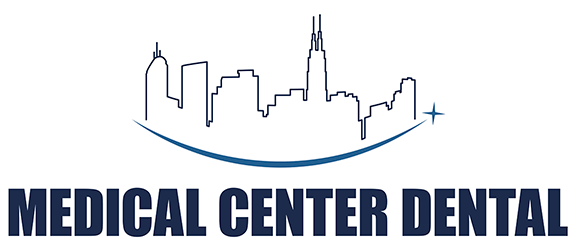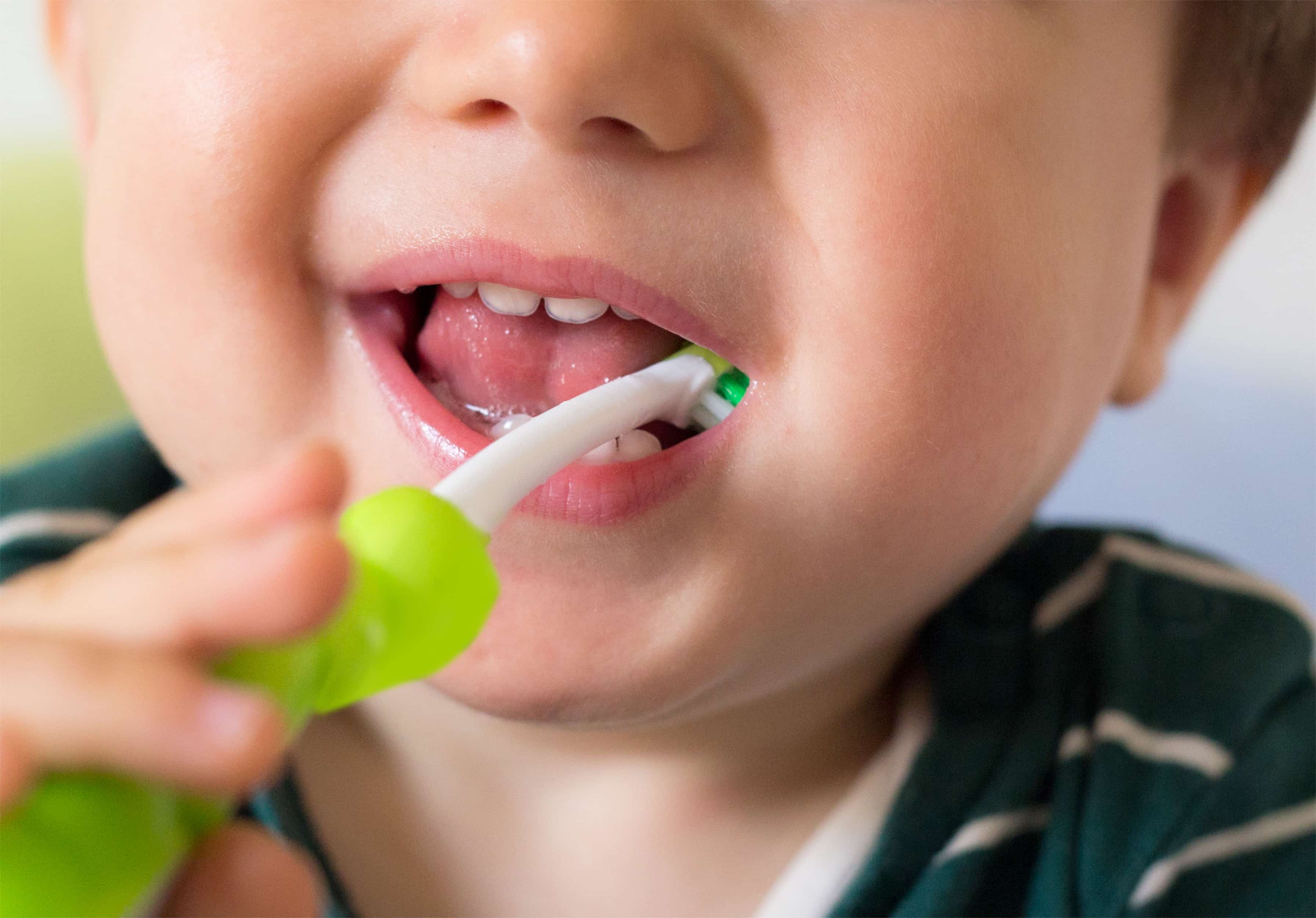Dental Services For Infants & Baby Teeth In Houston
Your baby’s first dental appointment is a big moment but for many parents, the conflicting information concerning a kid’s dental care can be confusing. In the past, parents were often advised to bring a child in for the first dental visit after multiple baby teeth have emerged or when a problem is suspected. Modern dental professionals recommend a much earlier introduction to the dentist than previously suggested. Establishing an early relationship between your baby and a dentist can lead to good lifelong dental habits.
When Should a Child First Visit the Dentist?
Parents don’t have to wait until multiple baby teeth have emerged to schedule a first dental visit. Most dentists recommend introducing an infant to the dentist within six months of the emergence of the first baby tooth. Since some children do not erupt teeth until later, the first visit should be scheduled by the first birthday, even if the child’s teeth have not yet appeared. Dental care not only involves dental cleanings and exams but also includes learning home care routines and establishing a healthy attitude toward dental visits.
What Should Pediatric Patients Expect at the First Visit?
If your child has never visited the dentist and is not currently experiencing any issues, the goal of the first visit may be primarily to establish a comfort level and relationship with the patient. Younger children are typically allowed to sit on the lap of a parent and explore some of the tools that dentists use. The dentist may have your child practice following simple directions, such as opening and closing the mouth on cue. If the child already has teeth, the dentist can make a fun game of counting them. The first visit establishes a new routine for you and your child, so the dentist may have several specific goals.
- Determine the general idea of the health of the teeth and gums
- Discuss oral hygiene strategies for small children
- Give advice about dietary changes that benefit oral health
- Look for potential developmental concerns
- Assess potential tooth position problems due to thumb-sucking or bottle use
- Answer any questions you have about your child’s dental health
- Provide a baby toothbrush, toothpaste, and other materials
How Often Should Children Visit the Dentist?
Once children are old enough to visit the dentist, a routine schedule should be established. Although full cleanings may not be possible for initial visits, baby teeth dental care involves tracking development progress and looking for signs of developmental problems. After several visits, your child may feel comfortable with the dentist examining the teeth and performing simple dental health tasks. Once your baby begins visiting the dentist, visits should be repeated twice a year.
How Can Parents Prepare a Baby For a First Dental Visit?
Before your baby’s first visit to the dentist, there are a few things you can do to prepare and make the experience more comfortable. If possible, let your child come with you to your dental check-up to show how easy and relaxing it can be. Discuss what to expect or try role-playing a dental visit if your baby is too young to understand a discussion. Try to schedule dental appointments during a time of day that your child is usually awake, alert, and content. If it’s too close to nap time or when it’s usually time to eat, you could experience more pushback and negative reactions.
What Are the Benefits of Early Dental Care?
Starting a good dental visit routine when your child’s teeth first emerge can have an effect on both the baby teeth and adult teeth. A baby’s teeth are susceptible to tooth decay like an adult’s, and it’s a common misconception that the health of the first teeth doesn’t matter. Oral care for your child’s teeth sets the stage for healthy adult teeth later.
Proper oral care for children affects more than just hygiene. Missing teeth due to tooth decay can cause issues with speech development for toddlers and children. Dentists can make sure baby bottles and pacifiers are not causing misalignment of your baby’s teeth since that can affect how the permanent teeth emerge. Alignment issues for permanent teeth may need to be corrected with orthodontic care. Dentists also can examine your baby’s gums to make sure no early signs of disease are present.
How Can Parents Care For Baby Teeth at Home?
Learning to care for your baby’s teeth and gums properly can be confusing, especially for a first-time parent. It’s easy to find conflicting information about how and when to begin oral care routines and when to begin scheduling dental visits. Paying attention to your child’s oral health can begin almost immediately after birth and lasts throughout childhood as you continue to assist a more independent child with oral hygiene.
After Birth But Before Teeth Emerge
Infants typically begin to erupt teeth as early as a few months old, but oral hygiene practices can begin a few days after birth. Before the first tooth emerges, you can focus on the baby’s gums. One of the easiest ways to do this is by using a clean, damp washcloth or a sterile gauze pad to wipe the gums daily. A special infant toothbrush constructed out of teething ring material but shaped like a real toothbrush allows babies to massage the gums and get used to the idea of brushing teeth. No toothpaste should be used on babies of this age.
After Teeth Emerge But Under the Age of Three
You can sweep across the gums with a clean finger and feel when the teeth start to erupt in a baby’s mouth. As soon as the teeth come in, it is possible for decay to occur. Once the first tooth arrives, it’s time to start using a soft toothbrush made specifically for a baby’s teeth. These are not for chewing, so an adult should assist. A rice-sized amount of toothpaste twice a day is all babies and toddlers of this age need.
Between Ages Three and Six
Children of this age are more independent but still need a parent’s supervision. Fluoride toothpaste in a pea-sized amount should be sufficient for twice-a-day brushing. At this age, your child still needs to be reminded to not swallow toothpaste. Most kids have spaces between the teeth at this age but if they are touching, floss needs to be added to the daily routine.
Ages Six and Up
Some children can brush and floss the teeth twice a day independently at this age, but if you have any reservations about the thoroughness or accuracy, you should still monitor. A small amount of fluoride toothpaste works best and is especially important as permanent teeth begin to emerge. Most children begin losing baby teeth at this age, and looking for signs of tooth decay early can help prevent future problems.
Schedule a Dental Visit at Ingenious Dentistry
The first dental visit for your baby is an important milestone, so making sure you establish a relationship with a caring and experienced dental practice can help your child set up good oral health practices for life. If you are in Houston, TX, or the surrounding areas and want to learn more about dental hygiene and health practices for your baby, contact Ingenious Dentistry today to set up an initial appointment. Call 713-795-5905 to get started today!
Other General Dentistry Services Offered at our Houston Dental Office
- Dentistry for kids
- Dental Fillings
- Dental Sealants
- Dental X-rays
- Root Canals
- Dental Crowns
- Tooth Extraction
- TMJ Disorders
_________________________________________________________
_________________________________________________________
Our Patient Reviews
“Had a dental emergency while visiting Houston for work. Dr. Brandt and his team were incredible and got me fixed up same day!”
— Trevor W.
_________________________________________________________
Featured Image: Shutterstock / Laura


